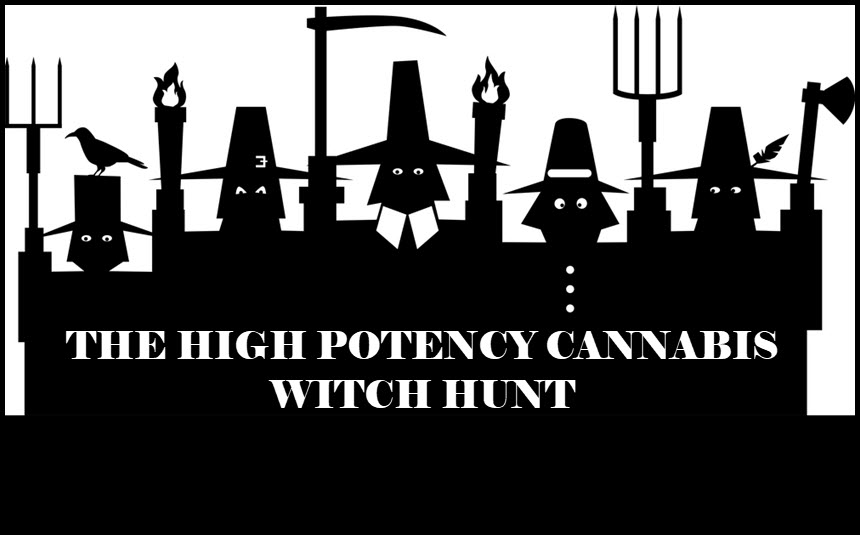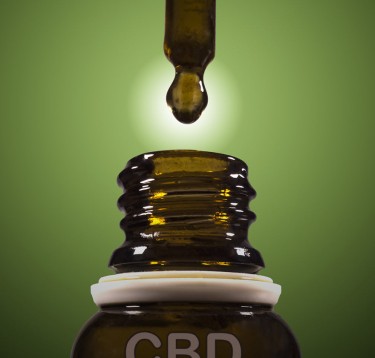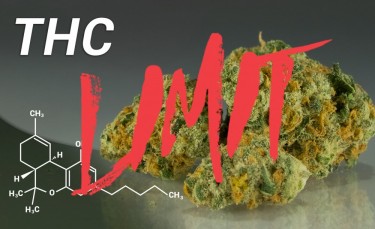
Is the high-THC cannabis panic a new form of reefer craze, or do we need to explore the mental health implications?
With federal cannabis legislation set to go before the Senate, marijuana-legalized states are now conducting new research into the risks associated with high-potency cannabis products. Among the questions raised is the possible link between these potent cannabis products and psychosis.
These latest high-potency cannabis products circulating on the market are commonly referred to as shatter or wax. These products have been known to contain up to 85% – 90% THC. In comparison, researchers confirmed that the THC content in a regular joint two decades ago was around 5%. Given this high THC content, Colorado and Washington are now trying to incorporate potency caps into their legislation.
During a forum held in January, Dr. Nora Volkow, Director of NIDA, expressed her concern that young adults are increasingly using highly potent cannabis. Volkow reiterated that she is concerned about the negative mental health effects of high levels of THC. She found that the higher the THC content, the higher the likelihood of psychosis. While the research is still ongoing, Volkow confirmed that another question that has yet to be answered is whether such a psychosis can cause lasting schizophrenia.
Bethany Moore, during an interview with NBC News, claimed that the best way forward is to address these concerns through proper labeling and testing. That being said, she believes states should only sell cannabis through licensed dispensaries to fully informed and legal adults. By only selling cannabis through legal dispensaries, Bethany claimed, activity in the illicit cannabis market would gradually diminish.
According to several public experts, cannabis industry advocates are to blame for the problem of high-potency cannabis products now flooding the market. This is because most industry supporters focused only on cannabis legalization without considering a market boom in cannabis concentrates.
In fact, a research scientist, Dr. Beatriz Carlini that they were not fully informed in 2012 before the vote on the draft law. She believes that many of the people who voted to support her voted for the cannabis plant and nothing else. In 2020, Carlini led a Washington state research team to study high-potency cannabis. After research, the team concluded that high-potency cannabis can have a lasting negative impact on mental health.
Carlini claimed that while there is a better understanding of cannabis and its medicinal benefits, high-potency cannabis is just another ball game. She compared the situation to marketing for strawberry frosting. She argued that while strawberries are healthy fruits, strawberry glaze is not healthy.
Currently, the high-potency cannabis circulating on the market is legal for purchase for adults over the age of 21. However, teenagers could easily gain access to the products.
efforts of the state legislature
The bill for federal cannabis legislation has been brought before the House. But as the politics unfolds, many are now looking forward to a promise from Senate Majority Leader Chuck Schumer, whom he previously vowed on April 22, that he would present a different version to the Senate next April.
Meanwhile, things are moving fast in Colorado thanks to testimonies from several doctors about the increasing cases of psychotic episodes related to cannabis concentrate. To address the situation, legislation was passed unanimously to restrict access to high-potency cannabis concentrates.
A section of the legislation also mandated the Colorado University School of Medicine to conduct a full review of over 800 scientific articles. The articles are designed to cover the effects of high-potency cannabis, focusing on both mental and physical health. The report is due to appear in July.
The leader of the team is Dr. Jon Samet, who is also responsible for the project. In his words, he confirmed that the study will not be easy as there is a lot of messy data that needs to be organized from the studies whose authors used different measurement methods. However, he shared his expectation of creating the latest public research database for the state.
In Washington state, researchers are one step ahead after completing a six-month review conducted by 11 scientists in 2020. Research found that THC has a dose-response effect. This means that the more THC consumed, the greater the negative effects on mental and physical health. This research began right after THC concentrate sales jumped from 9% to 35% between 2014 and 2020.
Researchers also revealed that young adults were most susceptible to the side effects, becoming addicted to high levels of THC. They then concluded that more police explanation and reflection is needed to support public welfare and overall health.
Carlini, who led the Washington researchers, confirmed that other states looking for guidance had also turned to her. She added that the initial mistakes are visible to all and people are willing to learn from their mistakes. Researchers from both federal states are now in contact and can provide advice if necessary
Regarding Seattle, researchers are looking at new ways to restrict access to THC concentrate. Approaches currently being evaluated include a tax set at the potency level or a potency cap practiced in New York and Illinois.
The research team in Washington is considering warning labels like those used in Canada. The warning label specifically notes the mental health risks of high levels of THC. The Washington research team’s upcoming report is due by the end of the year.
Conclusion
As it stands, Vermont is the only state that has imposed a potency cap on legal recreational cannabis. In the meantime, an attempt like that in Massachusetts and South Dakota has failed miserably.
Attempts at a long-lasting potency cap have proven difficult due to severe backlash from the cannabis industry. Many in the industry have claimed that there is little evidence of the widespread risks of high THC levels and that more research is needed.
However, Carlini has stood by her team and the research they conducted, saying that she and her team stand by the conclusion they reached. The higher the THC content of cannabis, the higher the likelihood of dangerous side effects.
MORE ABOUT HIGH POTENCY CANNABIS, READ THIS..

THE GUIDE TO HIGH CONCENTRATION CBD OIL WHAT YOU NEED TO KNOW!
OR…

SHOULD WE LIMIT THC IN CANNABIS? WHY IT’S A BAD IDEA!

Post a comment: